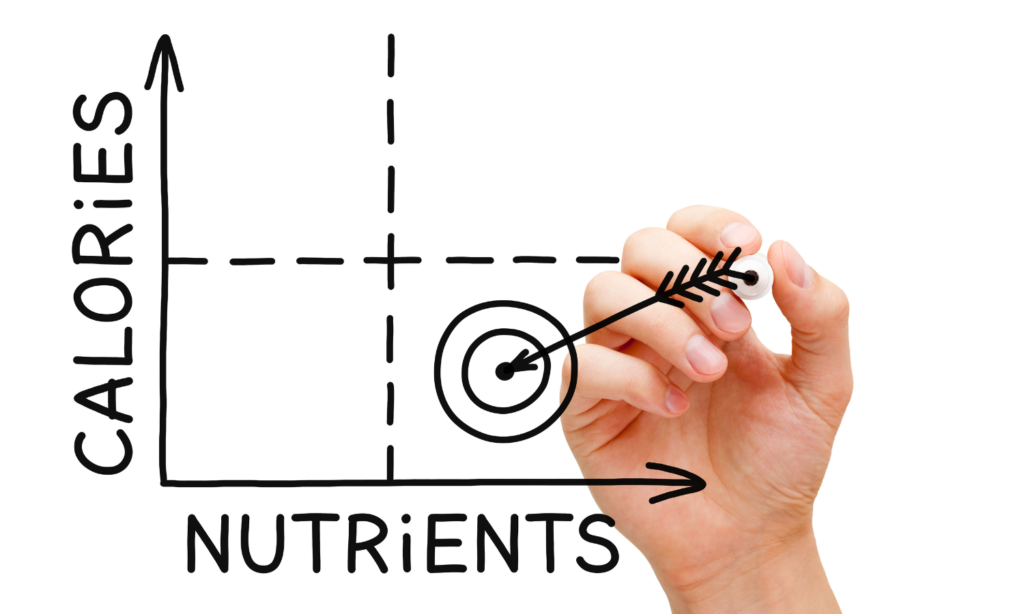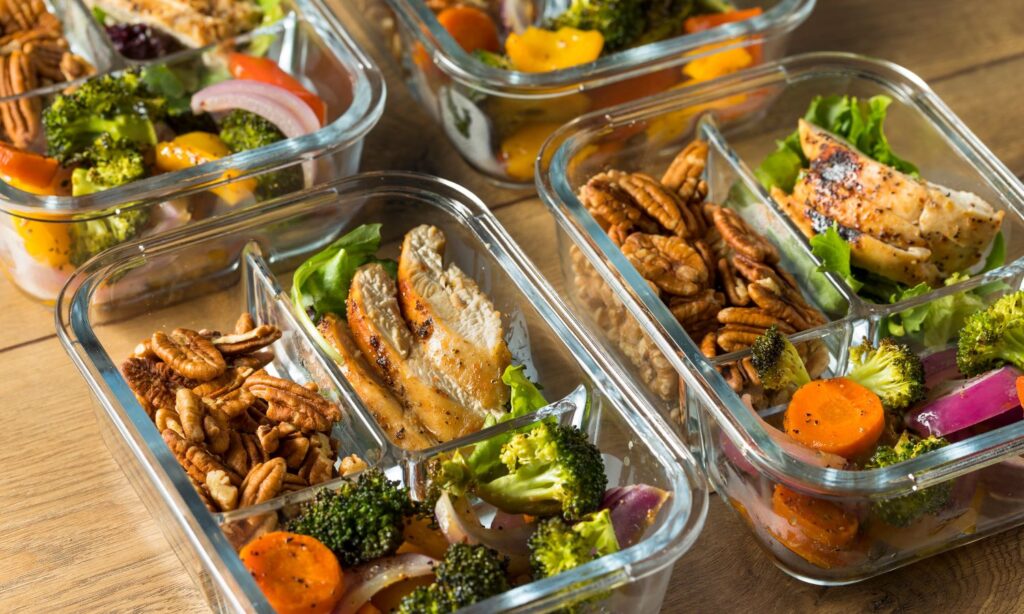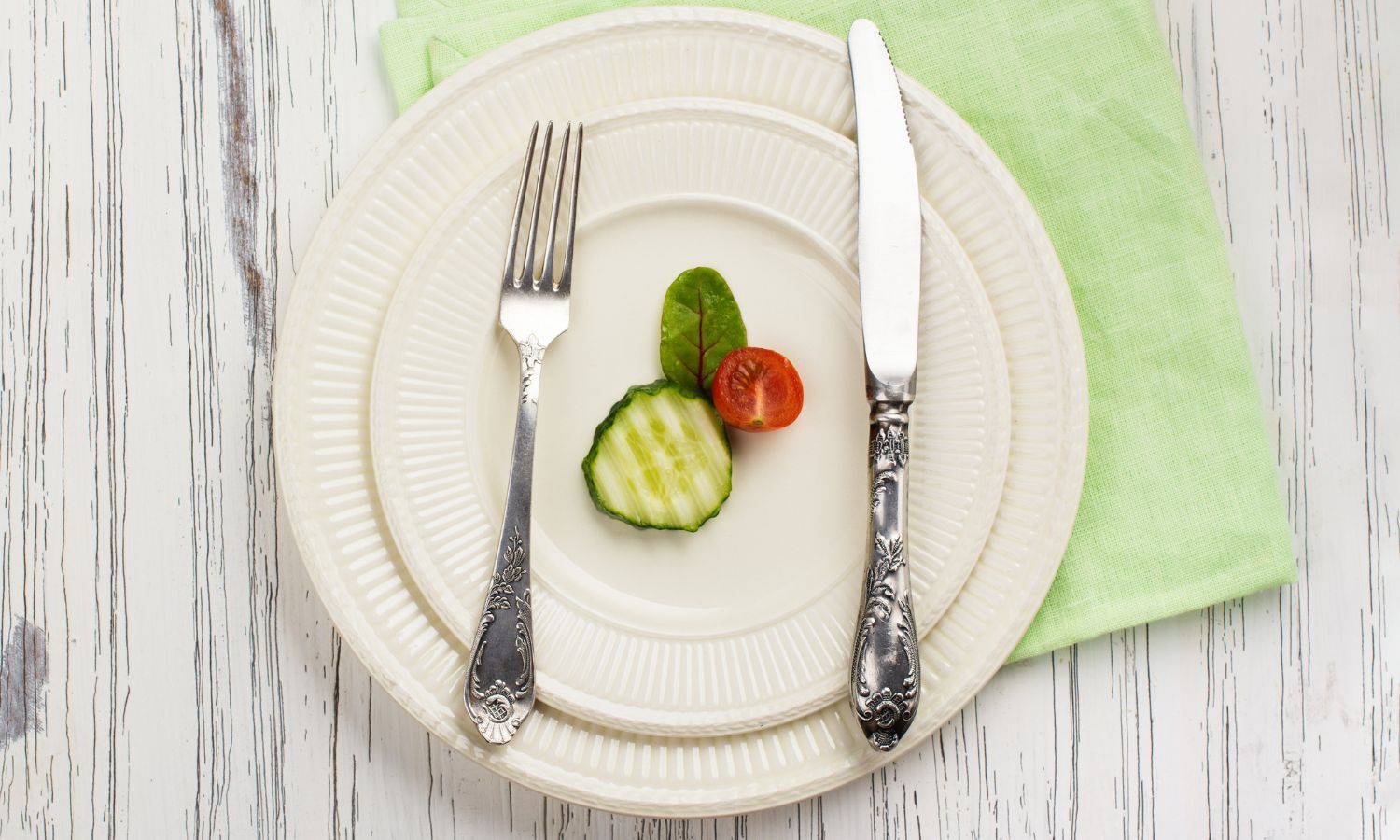Throughout my years of practice I have had the chance to work with quite a spectrum of cases. I have seen people lose 20 lbs in 2 weeks and have seen people struggle to lose 2 lbs in a month. Every case is different, but one thing I see very often is people not eating enough.
So I’m going to dive into the science behind why this is making things worse and how to get out of it.
Reason #1: You’re not eating enough:
OF all the reasons I see people struggling to lose weight, I would say undereating is by far the most common. Weirdly enough, I have seen way more people struggling to lose weight while under-eating, as opposed to overeating. No what you would think right? Well Iit’s true.
Ever since the onset of the Intermittent Fasting fad, I’ve seen a major uptick in people who skip breakfast and even people who only eat one meal per day. However, I will say that in many cases this is also due to high amounts of stress and overwhelm which reduces appetite and further justifies the habit of skipping meals. Usually, I hear the phrase, “so I’m basically intermittent fasting already, why am I not losing weight?” So many people have adopted the notion that eating less is the best way to lose weight, and I will say yes it works in the short term, but in the long run it causes a lot more issues.
So what happens when you eat less?
When you eat less food you drastically reduce your likelihood of consuming enough essential nutrients. These are nutrients that your body cannot produce on it’s own and must obtain through food such as amino acids, fiber, omega 3’s and 6’s, vitamins, and minerals. One way to think about it is that, when in abundance, these nutrients allow for the body to produce more fuel burning engines, and tap deeper into its precious fat stores. On the other hand, while in scarcity, the body will start cutting corners where it can in order to prioritize the most important metabolic processes for life. Thus, fat loss being turned off.
The most common issues I see developing as a result of this nutrient deficiency pattern is hormonal deficiency, rampant oxidative stress, and gut dysbiosis. Hormones like thyroid hormone and sex hormones help to increase metabolism and without the necessary proteins to build them, the body simply can’t afford to use resources for the purpose (1). Oxidative stress builds up as the body is exposed to stressors and deficient in antioxidants. The more oxidative stress present in the body, the more your fat burning engines (mitochondria) become damaged and disabled (2). When gut dysbiosis occurs and your microbiome is out of balance, the gut produces far more inflammation and thus metabolic processes that are regulated by the gut are turned way down (3). This can lead to hormone imbalances, alteration of caloric intake, appetite dysregulation, and a slew of other issues all leading to fat loss inhibition.
Is under-eating going to inhibit fat loss for everyone?
One thing to note is that it often depends on how healthy the individual is when they start cutting back on calories. If someone has pre-existing issues like a hormone imbalances or a high oxidative stress burden, they may be making matters far worse by restricting their diet. Thus, exacerbating their fat loss inhibition. Whereas a healthy individual might have more room to decrease their intake of essential nutrients for a short period of time. If course this can still be prevented by eating more nutrient dense foods.

The tricky part is that when people start seeing results by cutting out more food, they might not be losing actual body fat. The reason they quickly lose weight so quickly is because their carbohydrate stores (glycogen) are reducing which also happen to function as a reservoir for water in the muscles. Thus, they’re actually losing a lot of water weight, not necessarily body fat. Plus, this water weight quickly returns as soon as the muscles regain their glycogen. So, people are left feeling discouraged, as well as hungrier, so they end up overcompensating and gaining the weight back and then some. Now we have more issues given the negative and long term impact of caloric restriction on metabolism.
What to do when you’re stuck in the habit of skipping meals
So what is the best way to start addressing this issue? I usually recommend starting with a smaller breakfast and working your way up from there. Usually, your appetite will increase slowly as you adapt to a more regular eating routine so stay consistent and give it time. Working in a smoothie or leftovers may be an easy start if that works with your meal prep routine. Whatever you can stay consistent with is probably the best approach.
To be more specific, you ideally want to be eating a meal including at least 20 g of protein and some antioxidants. If you can make it high in omega 3 occasionally that’s a huge bonus as well, but if you can’t no big deal. Focus on trying to build a small meal around your protein whether that’s a shake, a meat, or a high protein plant-based food. From there you can add in a few fruits or veggies, and maybe a cup of green tea.
Here are some quick and easy breakfast ideas:
- Organic pastured eggs with organic spinach, onions, and red bell peppers
- Nitrate free turkey sausage with butternut squash and green peas
- Chocolate chia seed pudding with collagen powder mixed in, along with walnuts, strawberries, and cacao powder
How to meal prep:
If meal preparation is your challenge, start with some step by step meal preparation basics:
- Get yourself some more appliances so you can cook more things at once. I suggest a pressure cooker and an air fryer.
- Get yourself some good glass storage containers that can fit a large portion of food so you can cook more at once and store it for later use.
- Choose 2-3 recipes for breakfast, lunch, and dinner and create a meal plan for the week. If you can find some that you can make on the go and don’t require meal prep that’s even better.
- Make a list of your needed groceries and head to the grocery store. Be sure to get more of what’s on sale!
- Choose 2 days to meal prep like Sunday and Wednesday, and pick 1-2 breakfasts, lunches and/ or dinners to start with, or whatever meals require prepped ingredients.
- On your selected day, cook large batches of the ingredients these recipes to last at least 3 days. Then on the next day you meal prep, cook the rest of the ingredients for meals you had planned.

What to do you when you can’t meal prep:
If you need fast healthy high protein meals and you haven’t meal prepped yet or are struggling to get into the routine, I recommend you gravitate towards simple meals.
This would be recipes with under 5 ingredients and consisting of mostly raw or pre-cooked ingredients. For example:
- A simple smoothie with greens, protein powder, and fruit.
- You can also purchase healthy premade meal replacement smoothies like the OWYN brand (Purchase here) or ALOHA brand (purchase here) as quick grab and go.
- I also love a good quick protein bowl made of pre-cooked rice, and canned beans, peas, and salmon. You can flavor it up with some bottled up Asian sauces or spice blends (I love old bay) to make it more exciting.
- For snacks I recommend trying a handful of nuts, some veggies and olive oil based hummus, or even a little organic lunch meat which can usually hold you over. Don’t forget to drink plenty of water in between meals to help with satiety.
Conclusion:
Eating healthy is really all about eating enough of your essential nutrients. Calories do matter to some extent, but they won’t matter at all if your body is lacking the nutrients it needs to process them. Skipping meals and fasting long periods without compensation at later times will slowly deplete you and send you into metabolic disarray if you’re not careful. So it boils down to getting those nutrients in one way or another, by addressing your barriers to meal preparation, and creating a plan for success.
If you’d like someone to help you build this plan for success, schedule a free evaluation now and we’ll chat all about your barriers to eating more and how I can help you move past them.
If you’d like to learn more check out my other blog posts or join me and some other amazing weight loss enthusiasts on my FREE WEBINAR March 25th 1 pm PST. You won’t want to miss out!






No responses yet